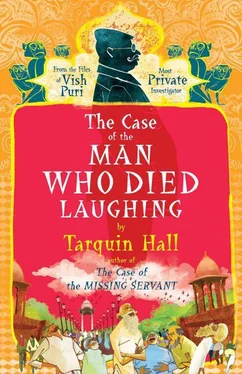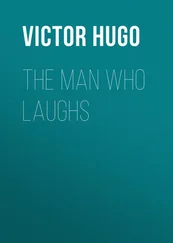Rumpi steered the conversation back on track: “Mrs. Jain is never short of money either.”
“Of course not,” interjected Uma. “Her husband is a high court judge. I hear he owns properties all over Delhi and a beach house in Goa as well.”
After a short interruption by the tea boy, who knocked on the door asking for empty glasses and was given short shrift by the beautician, Rumpi said: “Poor Mrs. Bansal. She was very upset. She never seems to have much money.”
“Ha! That one’s cheaper than a Marwari!” sneered Uma. “She never tips me more than five rupees. And she has not paid her bill.”
“Really?” Rumpi said, all innocence. “How much is it?”
“Four thousand plus. Arti Madam was talking about it only yesterday – saying how embarrassing it’s getting. Mrs. Bansal keeps saying she’s going to settle up but never does.”
“I wonder what the problem is?”
By now Uma was finishing Rumpi’s right leg, expertly spreading the warm wax with a butter knife and then whipping it off with muslin strips. She lowered her voice and said: “Last time she was here I heard her talking on the phone. Sounds like her husband is in some kind of trouble.”
“Any idea what kind?”
“Where men are concerned, it’s not hard to guess.”
* * *
Back in the car, Rumpi told Mummy about Mrs. Bansal’s unpaid bill.
“Arti was telling she paid the total amount this morning, only,” said Mummy, who had got chatting with the proprietor while having her treatments in another private room.
“It could be a coincidence,” suggested Rumpi, still holding out hope for another explanation for the crime.
“Assumption should not be made,” agreed Mummy. “But Mrs. Bansal is suspect nonetheless.”
Puri’s mother then outlined what else she had learned. Arti had told her that Mrs. Devi, another member of the kitty party, was ‘doing hanky-panky with some toy boy’.
“Anita? But she’s twice my size!”
“Seems she and he meet thrice weekly.”
Rumpi sat in stunned silence for a while and then said: “I suppose it just goes to show that you never really know some people. But I can’t see her masterminding a robbery, Mummy-ji. Her husband’s swimming in money.”
None of the other women seemed to be having any kind of financial or marital difficulties.
“So what’s the next step, Mummy-ji?” asked Rumpi, looking at her watch. It was nearly six o’clock, time for her to return home and start preparing the evening meals for herself, Jaiya and Chubby, who had called earlier to say that he was on the way back from Haridwar.
“Some background checking is required.”
“Of Mrs. Bansal? What did you have in mind?”
“We’ll do interrogation of servants. These types see and hear everything that is going on, na?”
Inspector Singh was not in the best of moods. When his aloo paranthas were placed in front of him, he scowled at the plate and growled, “Where’s the aachar?”
The Gymkhana Club waiters, a slothful bunch, had long since grown immune to the complaints of the club’s members, many of whom were professional whingers. Puri had often watched people yell at them with the contempt and abrasiveness of drill sergeants, to little or no effect. In Singh, though, they had met their match. The combination of his size, police uniform and menacing snarl had them flapping around like penguins.
In double time, a bowl full of mango pickle was fetched and placed on the table before him. The inspector did not look up or say thank you, but with an ill-disposed murmur ripped off a piece of parantha, scooped up a large lump of aachar, dunked it in his curd and then crammed the food into his mouth. As he began to chew, apparently satisfied, the waiters drew a collective sigh of relief, keeping a wary eye on him from behind their serving station.
Puri, who had arrived home from Haridwar late Thursday night and then set off at seven this morning for what had been billed by the inspector as an urgent meeting, was sitting across from his guest at a table in the Gym’s breakfast room.
He could tell that Singh had not enjoyed a good night’s sleep. The NCR had been hit by three hours of load shedding, and the inspector, who lived in modest housing in Mustafabad, northeast Delhi, didn’t have a backup inverter to run his ceiling fans.
Such systems did not come cheap. The police wallah, who had six mouths to feed, couldn’t afford one on his salary and wasn’t prepared to extort the price of one from the public. His ill temper, then, was a credit to him.
“I tried calling you yesterday but seems you were out of station?” he said, his mouth half full.
“Some family business was there,” lied Puri, who was keeping his visit to Haridwar, and the fact that he had planted an undercover operative inside the ashram, strictly under wraps.
The detective quickly changed the subject.
“Since last we met I’d a run-in with a cricket bat,” said Puri, who went on to describe how he had been ambushed in Dr. Jha’s office.
“Sir, I hope you weren’t breaking and entering again,” said Singh reproachfully. He took a dim view of some of Puri’s methods.
“Nothing of the sort. The side door was perfectly open, actually. Just I surprised some intruder engaged in going through Dr. Jha’s files. How he got the better of me remains a mystery. My reflexes are like lightning.”
The faintest hint of a smile flickered across Singh’s face as he took another bite of his parantha and then asked: “Did you see who did it?”
For a moment, Puri seemed lost for words.
“My memory of events is something of a fog,” he said. “It is like I had a dream but certain details are missing. I remember someone familiar to me saying something. Just I cannot put my finger on who or what.”
“I’m sure it will come back to you, sir,” said Singh helpfully. His breakfast and salty tea seemed to be improving his temperament.
“Just I hope it is not weeks or months. So frustrating it is.”
A waiter arrived bearing a plate of idlis arranged on a banana leaf and placed it in front of Puri. He immediately cut off a portion of one of the rice patties, drowned it in coconut chutney and some spicy sambar and devoured it.
“So tell me. What is so urgent I had to come into town so early, Inspector?”
Singh, who had finished his food, wiped his hands on his napkin and placed it on the table. “Sir, the chief knows you’re investigating the Jha case,” he said with solemnity.
Puri shrugged. “That is hardly a surprise, no? Delhi is like a village with women gossiping round the water pump. Eventually everyone gets to know everyone else’s business.” He took another bite of his food.
“He knows I took you to the murder scene and he’s furious. He ordered me to meet you this morning and warn you off.”
“Then I will consider myself warned,” said Puri with a grin.
Singh sipped his tea. “But tell me, sir – strictly between us. Have you made any progress?”
“Come now, Inspector, you know I don’t have the habit of sharing my theories until they are tried and tested,” answered Puri. The truth was, though, that he still had little to go on – just a few scraps of information and a hunch or two.
Not that Puri was worried. Not especially. He had solved many a case in the past with less evidence available to him at this stage in the investigation. In India, perhaps more than anywhere else in the world, the methodology of undercover intelligence gathering established by Chanakya nearly two and a half millennia ago was often the only surefire way of solving a mystery. Patience was required.
“I know, sir, but is it really necessary to keep me completely in the dark?” asked Singh. “We’re on the same side after all. I feel useless – impotent.”
Читать дальше












